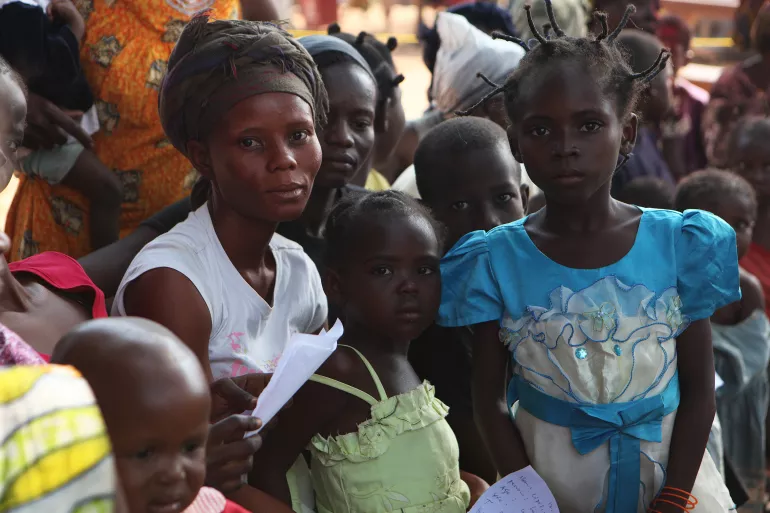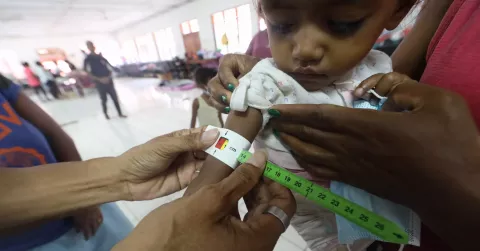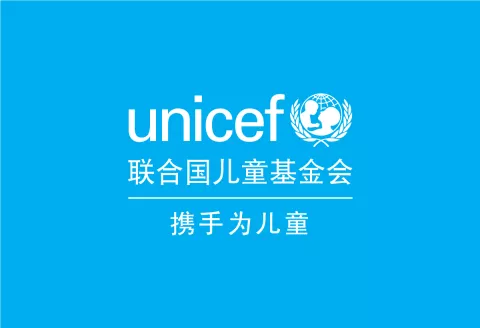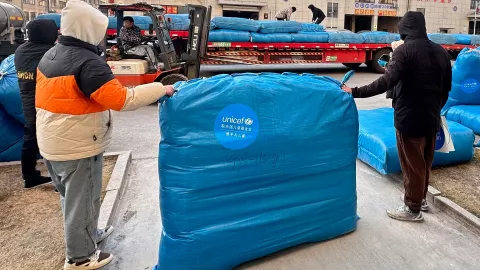UNICEF calls for US$2.2 billion to help 59 million children in emergencies
Largest emergency appeal on record, almost 40 per cent for Syria and region

- Available in:
- 中文
- English
GENEVA, 21 February 2014 – UNICEF appealed today for almost US$2.2 billion to provide life-saving humanitarian assistance in 2014 to 85 million people, including 59 million children, who face conflict, natural disasters and other complex emergencies in 50 countries.
“I have just returned from South Sudan, the latest large-scale conflict to disrupt the lives of millions of innocent children. Over 400,000 children and their families have been displaced by the conflict, and over 3.2 million people are in need of humanitarian assistance. The rainy season is coming and we need to preposition supplies and reinforce essential services, for which we need urgent funding to prevent a catastrophe,” said Ted Chaiban, UNICEF's Director of Emergency Programmes.
“The children of South Sudan join millions of others affected by conflict in the Central African Republic and Syria. But while today's headlines focus on these complex, under-funded crises, many other desperate situations also require immediate funding and urgent humanitarian assistance. These include Afghanistan, Colombia, the Democratic Republic of the Congo, Myanmar, Somalia and Yemen, and other countries reflected in UNICEF's appeal,” Chaiban said.
UNICEF's Humanitarian Action for Children 2014 appeal highlights the daily challenges faced by children in humanitarian crises, the support required to help them survive and thrive, and the results that are possible even in the most difficult circumstances.
For Syria and the sub-region, UNICEF is appealing for US$835 million to deliver life-saving assistance including immunization, water and sanitation, education, and protection; and to support the social cohesion and peace-building skills needed to build a more sustainable future.
“Children are always the most vulnerable group in emergencies, facing a high risk of violence, exploitation, disease and neglect,” Chaiban said. “But when support is made available, we can change the lives of children for the better. With its partners, UNICEF is working to address a diverse range of humanitarian situations including malnutrition in the Sahel; lack of safe drinking water and adequate sanitation in Yemen; cholera in Haiti; increased attacks on children in Afghanistan; and drought in Angola.”
Funds raised by the appeal will also help UNICEF in its work with partners to strengthen communities' abilities to cope with future conflict or natural disaster shocks, by reinforcing national preparedness systems and developing resilience among children and communities.
Contributions to UNICEF's 2014 appeal will allow the organization to build on its work in 2013, during which the following results were achieved:
- 24.5 million children immunized against measles;
- Nearly 20 million people provided with access to safe water for drinking, cooking and bathing;
- 2.7 million children provided with access to improved education, both formal and non-formal;
- 1.9 million children treated for severe acute malnutrition; and
- 935,000 children reached with psychological support.
However, funding gaps in some countries – such as Angola, Eritrea, Lesotho and Madagascar – as well as inadequate humanitarian access, insecurity and a challenging operating environment meant that many needs were not met. UNICEF particularly seeks resources that are not ear-marked for specific programmes or emergencies. This would allow the agency to respond to underfunded emergencies or where the needs are greatest; to apply innovative solutions to complex situations; and to integrate early recovery programming in large-scale emergencies, many of which affect several countries simultaneously.
The Humanitarian Action for Children 2014 appeal and related country information can be found here: www.unicef.org/appeals
Multimedia content available at http://weshare.unicef.org/MediaResources
Note to Editors
The 50 countries and areas featured in the Humanitarian Action for Children 2014 appeal are highlighted due to the scale of these crises, the urgency of their impact on children and women, the complexity of the response, and the capacity to respond.
Media contacts
About UNICEF
UNICEF works in some of the world's toughest places, to reach the world's most disadvantaged children. Across 190 countries and territories, we work for every child, everywhere, to build a better world for everyone. For more information about UNICEF and its work for children visit www.unicef.org.
| Visit UNICEF China website: www.unicef.cn Follow us on Sina Weibo: http://weibo.com/unicefchina Tencent Weibo: http://t.qq.com/unicef Wechat: unicefchina |




